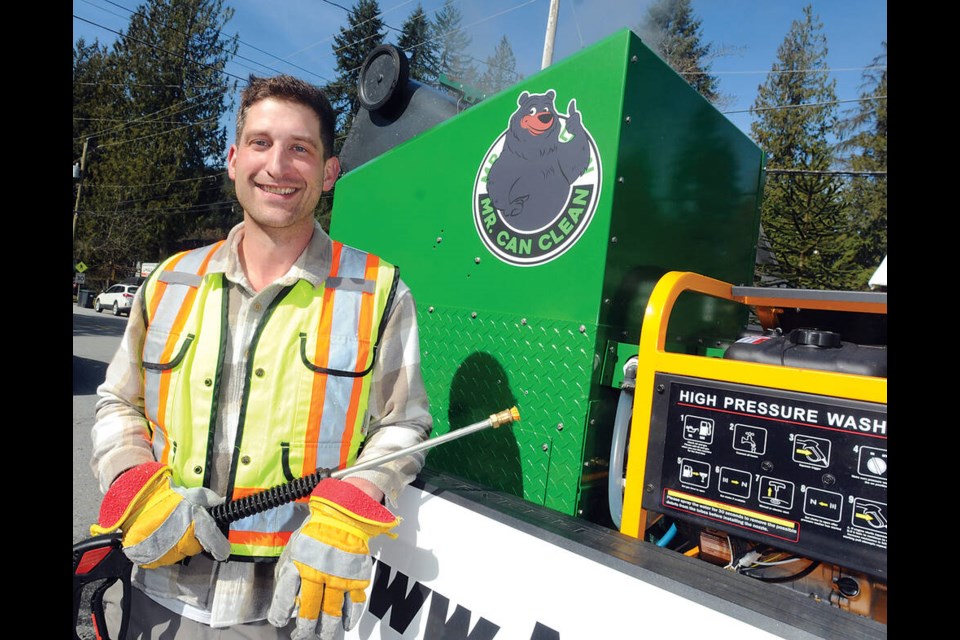A community with stinky garbage bins and barbecues could mean a death sentence for a hungry bear.
That’s why lifelong North Vancouver resident Mac Fairbairn has launched Mr. Can Clean, a service that sanitizes your waste and recycling receptacles, and leaves them with a pleasant pine scent which bears happen to dislike.
As the North Shore Black Bear Society has pointed out on numerous occasions, smelly things around our homes are often objects of interest for bears, which are known to have the best sense of smell in the animal kingdom. And when they become habituated to food sources in urban areas, they can be deemed dangerous to the public and killed by conservation officers.
“I don’t want any bears to be killed,” Fairbairn said.
Following the rollout of his business in January, Fairbairn has been driving his white pickup truck around the North Shore, on streets he used to frequent as a waste collector for the District of North Vancouver. Mounted in the bed of his truck is a water tank and metal cleaning station, painted in bright green with a bear giving the thumbs-up as his logo.
After a client leaves their bins on the street, Fairbairn’s cleaning station, or “hopper,” lifts them up and pressure washes them with super-hot, 180 C water, which cleans and disinfects without the use of chemicals. Most of that water is recycled, Fairbairn explains.
Once washed, he sprays the bins with pine. “[Bears] dislike it, or they avoid the smell of pine,” he said. Fairbairn then returns the cleaned cans to their storage place. Most of his clients so far have signed up for a monthly service, but some are weekly.
From his years of handling waste bins, Fairbairn has seen that locks won’t stop a determined bear.
“A bear is gonna rip them apart,” he said. “The only thing you can do is have a can that’s not an attractant – the attractant is the smell.”
Despite his experience, Fairbairn said he still comes across cans that are disgusting beyond belief.
“The bottom of them is sometimes awful,” he said. “I had a can that was about 15 per cent rotten organics and dog poo. And I’m gagging … but it’s very satisfying to clean them.”
Sometimes it takes him 10 or 15 minutes of continuous cleaning to get the smell out, Fairbairn said.
“People will go, ‘Oh, I’ll do it myself,’” he said. “There’s no chance you can clean it to this level.”
Part of proceeds go to North Shore Black Bear Society
As he was getting his business up and running, he contacted the North Shore Black Bear Society about his idea.
“They were super stoked, super supportive,” Fairbairn said. “We both have such similar interests: I want to clean people’s cans, they want people to have clean cans. And we both don’t want any bears to get killed.”
As part of Fairbairn’s business model, a portion of each cleaning goes to the North Shore Black Bear Society. In his first two months of operation, Mr. Can Clean donated more than $1,000 to the society.
Because the society does a lot of outreach work in the community, sometimes they tip Fairbairn off to an interested client or when he should try knocking on the door of a home with stinky bins.
Reflecting on his past experience riding down the winding North Shore streets in a garbage truck, Fairbairn noted other benefits to having nice-smelling cans. While bears can learn to return to areas where they find food, waste collectors have long memories too.
“As a garbage man, if there’s a dirty can, you’re looking at that guy’s house like, ‘Well, next time, I’m not going to take extra,’” he said.





